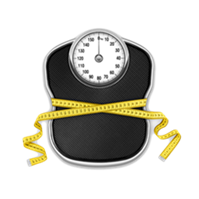The struggle to lose weight is a common problem that many people face. With the rise of fast food restaurants and sedentary lifestyles, it has become increasingly difficult to maintain a healthy weight. However, the good news is that it is possible to lose weight with a few lifestyle changes. One effective approach is to apply the “Iceberg Effect” to your weight loss journey. In this article, we will discuss what the Iceberg Effect is, how it can help you lose weight, and practical tips to apply it.
The Iceberg Effect is a metaphor used to describe how a small part of an issue or problem is visible above the surface, while the vast majority of it remains hidden below. In the context of weight loss, the visible part could be the actual weight loss, while the hidden part is the underlying causes and factors that contribute to weight gain. The iceberg represents the idea that weight loss is not just about following a diet or exercise plan, but rather a complex process that involves various factors that are not visible.
For example, stress, emotional eating, poor sleep, and hormonal imbalances can all contribute to weight gain. However, these factors are not always easy to recognize or address, and many people focus only on the visible part of the iceberg – the weight loss itself – without addressing the underlying causes.
To apply the Iceberg Effect to your weight loss journey, you need to focus on both the visible and hidden parts of the problem. This means not only following a healthy diet and exercise plan but also addressing the underlying factors that contribute to weight gain. By doing so, you will not only lose weight but also improve your overall health and well-being.
Here are some practical tips to apply the Iceberg Effect to your weight loss journey:
- Address emotional eating
Emotional eating is when you eat to soothe negative emotions such as stress, anxiety, or boredom. This can lead to overeating and weight gain. To address emotional eating, start by identifying your triggers. Keep a food diary and write down what you eat, when you eat, and how you feel before and after eating. This will help you identify patterns and triggers.
Once you have identified your triggers, find alternative ways to cope with negative emotions. For example, if you feel stressed, go for a walk, practice yoga, or meditate. If you feel bored, find a new hobby or activity that you enjoy.
- Manage stress
Stress can cause hormonal imbalances that contribute to weight gain. To manage stress, practice relaxation techniques such as deep breathing, meditation, or yoga. Make time for activities that you enjoy and that help you relax, such as reading a book, taking a bath, or spending time with loved ones.
- Get enough sleep
Poor sleep can contribute to weight gain by affecting your hormones that regulate appetite and metabolism. Aim for at least seven to eight hours of sleep each night. Establish a regular sleep routine by going to bed and waking up at the same time each day. Avoid caffeine and alcohol before bedtime, and create a relaxing sleep environment by keeping your bedroom cool, dark, and quiet.
- Eat a healthy diet
Eating a healthy diet is essential for weight loss. Focus on whole, nutrient-dense foods such as fruits, vegetables, lean protein, and whole grains. Avoid processed foods, sugary drinks, and snacks high in fat and calories. Eat slowly and mindfully, savoring each bite and paying attention to your hunger and fullness cues.
- Exercise regularly
Regular exercise is essential for weight loss and overall health. Aim for at least 150 minutes of moderate-intensity exercise or 75 minutes of vigorous-intensity exercise each week. Choose activities that you enjoy, such as walking, jogging, cycling, or swimming. Incorporate strength training at least twice a week to build muscle and increase metabolism.
- Stay hydrated
Drinking enough water is important for weight loss as it helps to flush out toxins and reduce cravings. Aim for at least eight glasses of water each day, and avoid sugary drinks and alcohol.
- Seek support
Losing weight can be challenging, and it’s important to have a support system to help you stay on track. Seek support from friends, family, or a support group. Consider working with a registered dietitian or a personal trainer to develop a personalized plan that suits your needs and goals.
In conclusion, the Iceberg Effect is a powerful tool to help you lose weight and improve your overall health and well-being. By focusing on both the visible and hidden parts of the problem, you can address the underlying factors that contribute to weight gain and develop a sustainable, healthy lifestyle. Remember that weight loss is not just about following a diet or exercise plan, but rather a complex process that involves various factors that are not always visible. With patience, persistence, and a holistic approach, you can achieve your weight loss goals and improve your quality of life.







